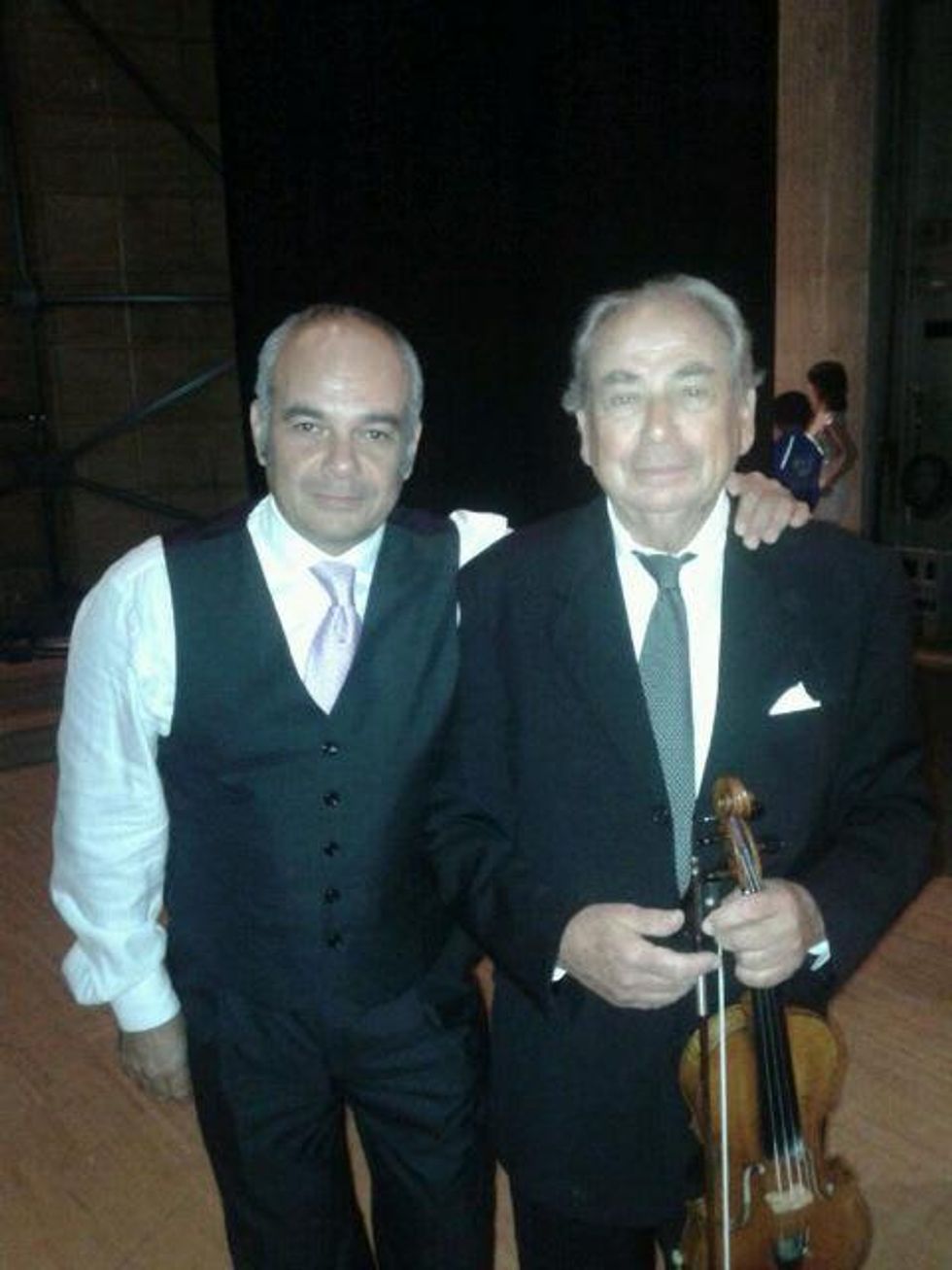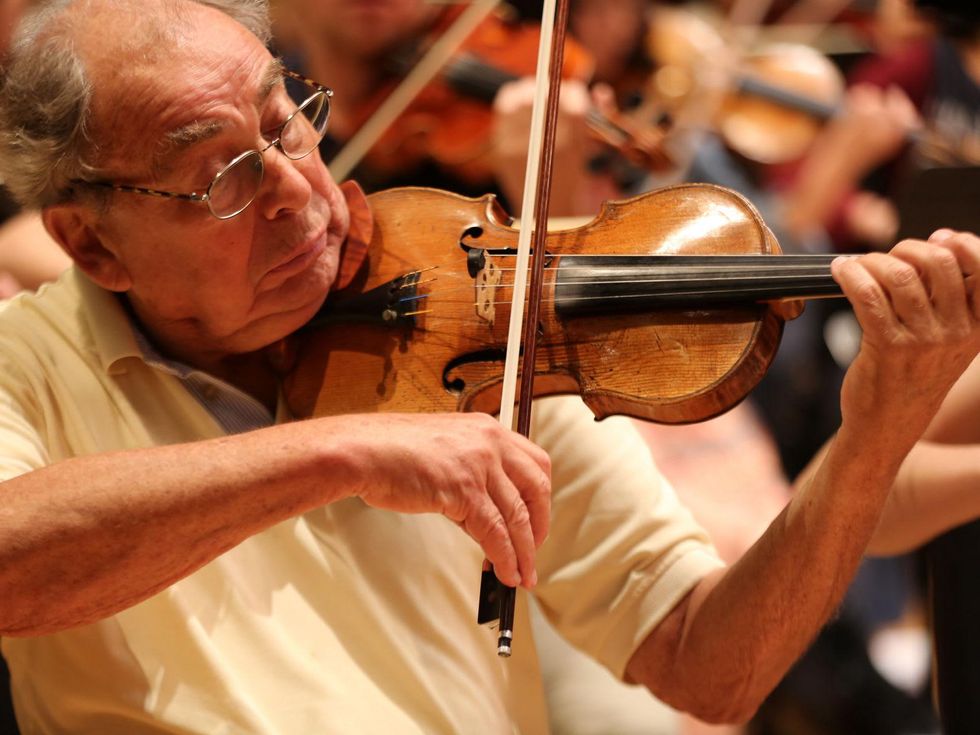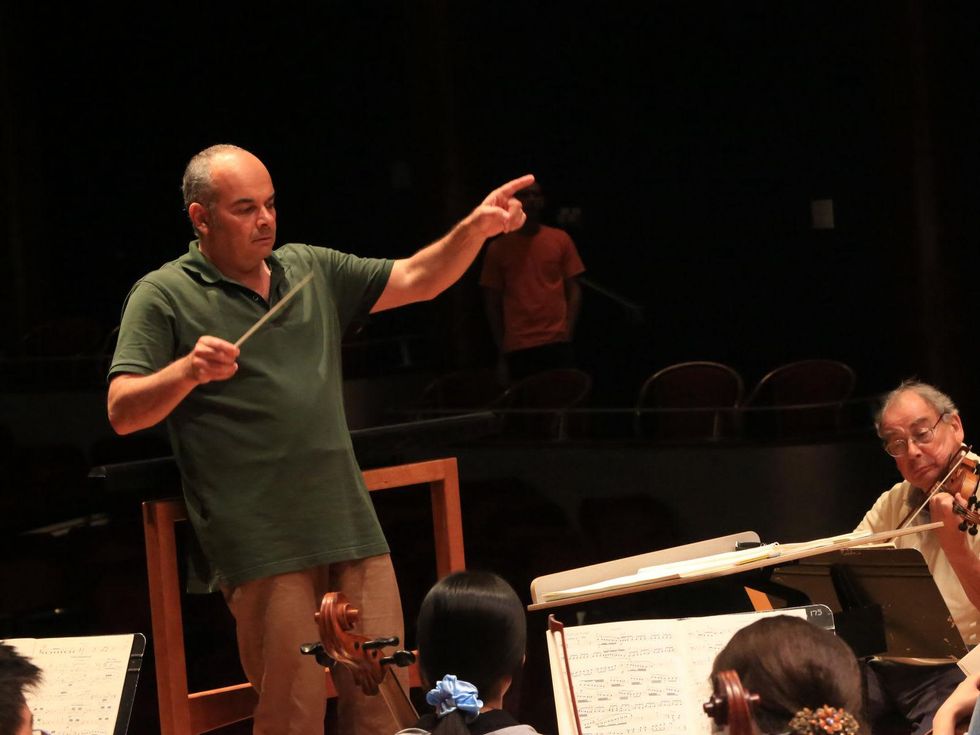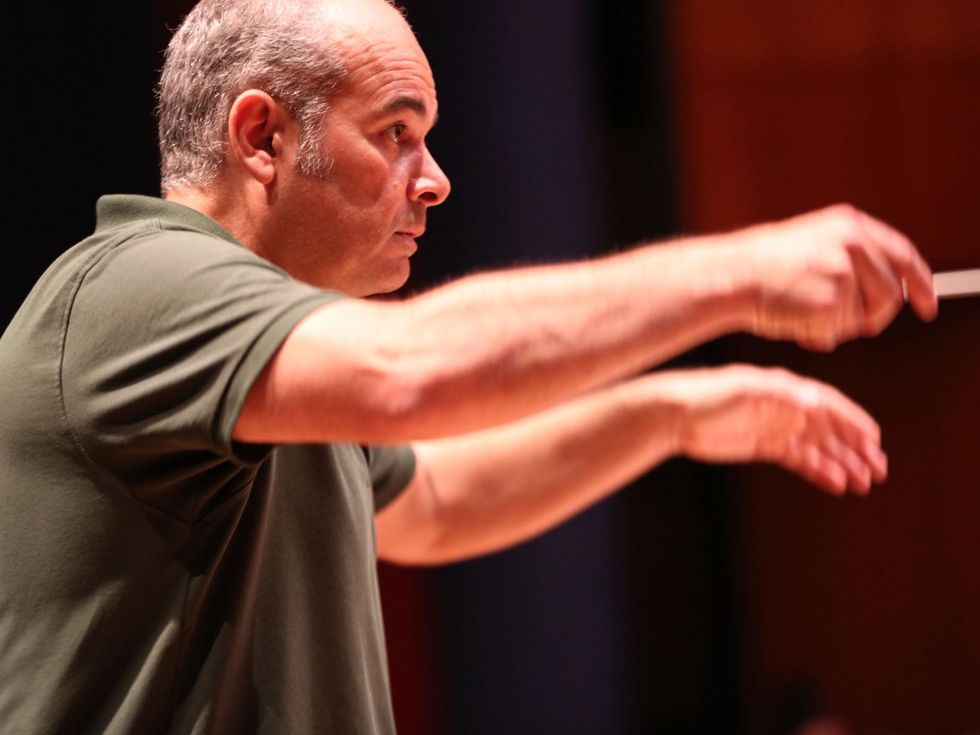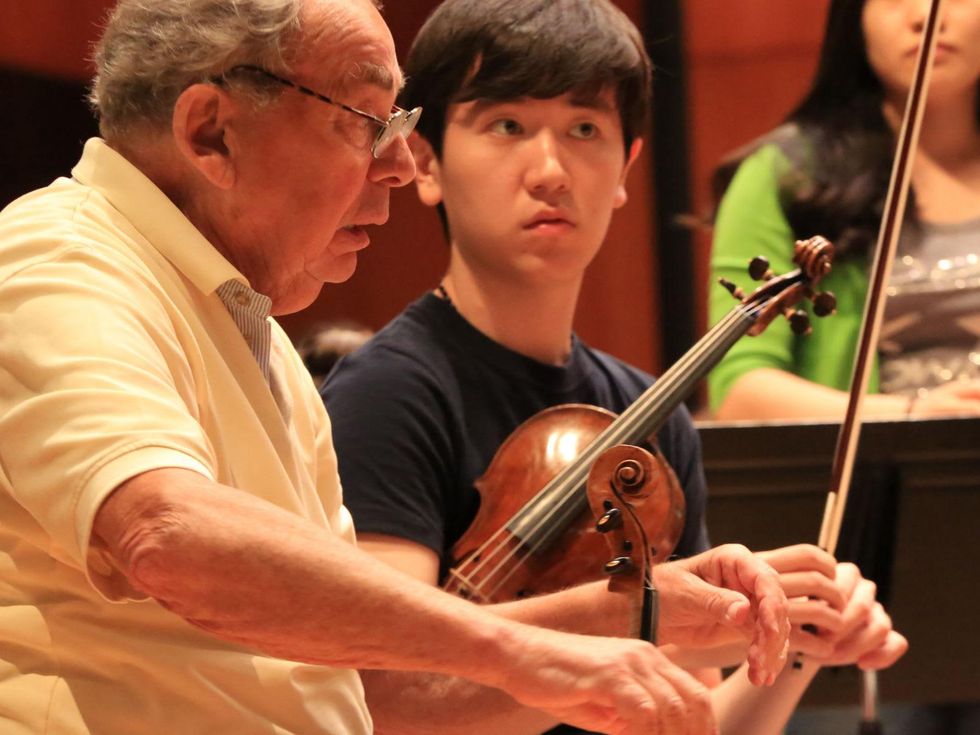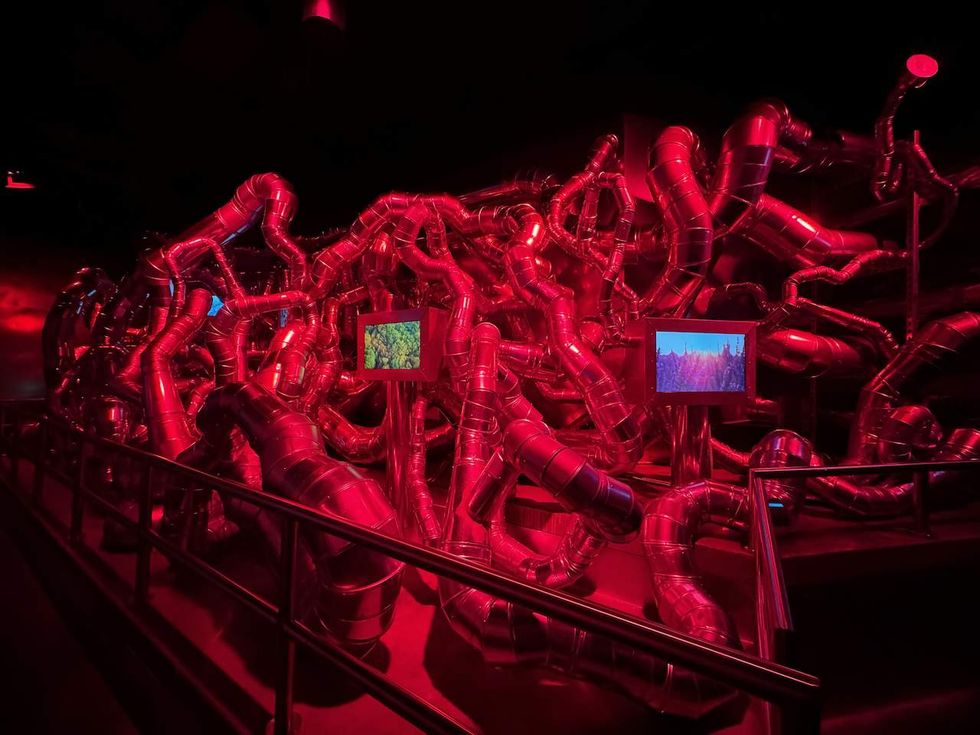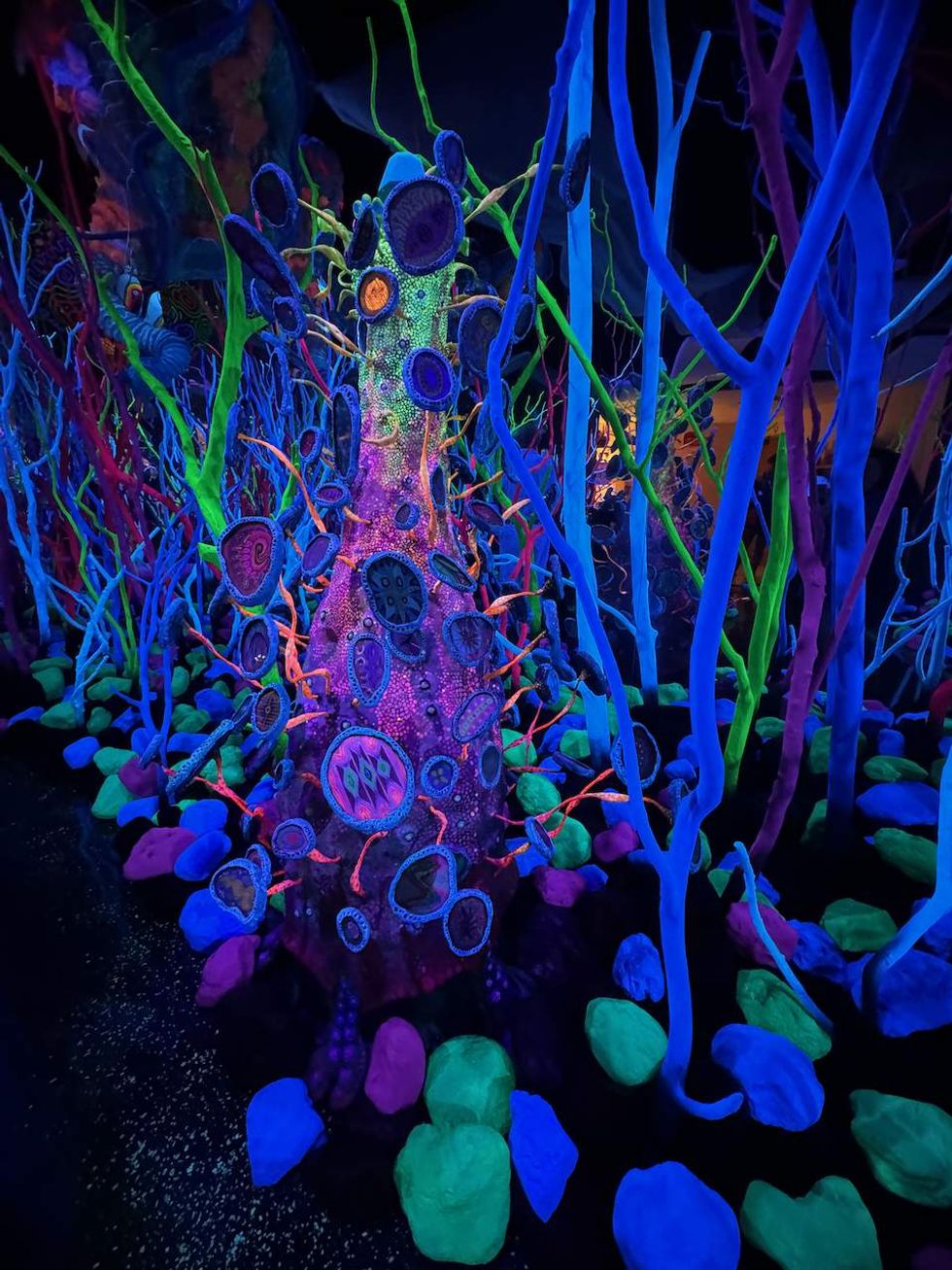Sound Advice
A dad's hope: Legendary violinist and son unite for special Father's Day weekend at Texas Music Fest
Words of wisdom or tough love?
"I, Leon Spierer, will be the first one who will take you out of this orchestra if things don't work," one caring father said.
Carlos Spierer will never forget these stern words of advice spoken by his father. Leon Spierer, then the first concertmaster of the Berlin Philharmonic under the baton of Herbert Von Karajan, counseled his youngest son about what will be expected of him as a substitute violinist in the famed ensemble.
It was one of a handful of moments in this father-son relationship when Leon could impart some knowledge to Carlos. Leon says that Carlos, in his younger years, was temperamental. Carlos amicably agrees. But then again, any occasion in which a father tries to teach his son somehow turns problematic.
It's the nature of complicated familial relationships — particularly with two people united by a passionate métier but separated by a generation.
But by now Carlos was much older and wiser — and heeded his father's guidance. What Leon meant is that he didn't want any trouble. Leon wanted Carlos to be prepared. And so Carlos played for his father, learning the distinctive style of one of the best orchestras in the world.
This interchange may have happened a few decades ago. But the father-and-son duo — who's in Houston to perform with the Texas Music Festival Orchestra on Saturday (Carlos on the podium and Leon as concertmaster) with a program that includes Lorin Maazel's The Ring Without Words arrangement of Wagner's epic operatic masterpiece — relives this moment with the nostalgia of a remarkable family who's seen the best and worst of the human condition.
"Carlos was the little boy in between the music, in between the music stands, in between the musicians. He was captivated by music."
A family's musical journey
Leon's Polish father and Russian mother found themselves in Berlin, where Leon was born after World War I. One of his maternal uncles had emigrated to Berlin in the 1920s to pursue studies in violin; the uncle later made a respectable living as the founder of a ballroom orchestra. In the 1930s, Leon's family moved to Luxembourg and then to Argentina, where Leon earned a degree in economics from a Buenos Aires university while studying with Ljerko Spiller, a famous Croatian-Argentine violinist.
Leon later received a British Council scholarship to study in London, after which he landed concertmaster positions in Nuremberg, Bremen and Stockholm. Leon's three children were born in Sweden.
Endearingly, Leon refers to his three children as opus one, opus two and opus three.
"I call them my opus productions," Leon quips. "I like to say that my wife, together, we did very good symphonies."
Leon's dream, and perhaps the hope of every parent, was for at least one of his children to follow in his footsteps without obligation. While all three children were given the opportunity to explore music, Leon immediately recognized that Carlos would be the one to carry on his tuneful legacy. Leon's daughter, Gabriella, became a short film producer in New York. The eldest son, Roberto, is a plastic and hand surgeon in Berlin.
"Carlos was the little boy in between the music, in between the music stands, in between the musicians," Leon recalls. "He would be near the orchestra during concerts, at intermission, during rehearsals. He was captivated by music."
Like father, like son
It wasn't until he was a teenager that Carlos came to understand the significance of his father's position. It was natural for Carlos to see his father sitting in the front desk, to see his father be the last instrumentalist to walk on stage, to see his father be the one who tuned the orchestra and helm the violin section.
Leon was dad, not the bearer of a position that's exceptionally difficult to get and even more exceptionally difficult to keep.
"I grew up listening to my father's violin. I grew up with his way of playing. I grew up with my father's sound."
"I remember hearing my father more than seeing him," Carlos says about growing up in a musical family. "He was, in a positive sense, a workaholic. Whenever he was at home, he was practicing. With the many students that came through our home, I heard many sonatas and concerti, and I heard my father work on all the orchestral material.
"I grew up listening to my father's violin. I grew up with his way of playing. I grew up with my father's sound."
Carlos continued his music education with celebrated American violinist Fredell Lack at the University of Houston. He then returned to Germany to study conducting with Klauspeter Seibel at the Conservatory for Music in Hamburg. Throughout his successful career he has held posts with the Kiel Opera, Gävle Symphony Orchestra in Sweden, the Orquesta Sinfónica de Minería in Mexico City and the Giessen Theatre. His recording of works by Swedish composer Oscar Byström earned BBC Music Magazine's 1998 CD of the Year award.
Sound advice
Leon's demanding occupation and prestigious post — he served as the Berlin Philharmonic first concertmaster from 1963 to 1993 — didn't leave much time for parenting. His wife, who he describes as very musical, very artistic and quite temperamental, took care of educating the children. She died very young. Carlos was 21 years old when his mother passed.
"I can only say that I don't know if I've been enough of a father," Leon says.
But their relationship strengthened after their loss. Leon taught Carlos to listen carefully to other musicians. Because of his father, Carlos' scores are teeming with descriptive markings that free him from the written page to allow the spontaneity of music-making to take flight.
"Am I proud? What's proud? I am happy. I am very happy. Isn't that more important?"
"My father taught me to be prepared, to show emotions and to be fast," Carlos says. "That means you can make as many mistakes as you need to as you are learning, but to never ever make the same mistake twice. If a conductor asks you to do something, don't argue. If it doesn't work immediately, work on it."
In recent years, they've been able to perform more and more together, an activity that has brought them even closer to one another. While sitting side by side in the Moores Opera House taking a walk down memory lane, it's apparent that their bond extends beyond their vocation.
"Am I proud? What's proud?" Leon says tenderly. "I am happy. I am very happy. Isn't that more important?"
If Leon has one piece of advice as Carlos moves on to the next stage in his career, that is to keep going, to keep on doing just what he's doing — but with a simple request.
"You're doing a very fine job," Leon says to Carlos. "You are the conductor, so I must do what you want. But won't you let me play my solo a little slower?"
Seems like a fair appeal, especially as this Texas Music Festival concert falls on Father's Day weekend.
___
The Texas Music Festival presents "Wagner and Mitchell Competition Winner" on Saturday, 7:30 p.m., at the University of Houston's Moores Opera House. The evening begins at 6:30 p.m. with pre-concert entertainment followed by a pre-concert lecture from 6:40 to 7:10 p.m. The performance starts at 7:30 p.m. Tickets are $15 for adults, $10 for students and seniors, and $8 for groups of 10 or more. Tickets may be purchased online or by calling 713-743-3313.
